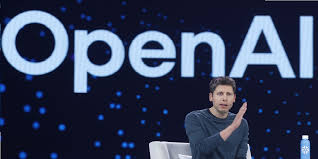Following a secondary equity sale intended to retain staff at the ChatGPT maker, OpenAI may now surpass Elon Musk’s SpaceX and TikTok’s parent firm, ByteDance, as the most valuable startup in the world.
Current and former OpenAI employees sold $6.6 billion worth of shares to a group of investors, increasing the privately held artificial intelligence company’s valuation to $500 billion.
Along with the Japanese tech behemoth SoftBank and the United Arab Emirates’ MGX, Thrive Capital, Dragoneer Investment Group, and T. Rowe Price were among the investors purchasing the shares.
High hopes for AI technology’s future are reflected in the value, which also maintains OpenAI’s impressive growth since its founding as a nonprofit research lab in 2015.
However, since the San Francisco-based company has yet to earn a profit, it may also heighten worries about an AI bubble if investors who have invested billions of dollars in research and development are not satisfied with the generative AI products produced by OpenAI and its rivals.
When he visited a huge data center complex being constructed in Abilene, Texas, to house the company’s AI systems last week, OpenAI CEO Sam Altman attempted to allay such worries.
When asked about a bubble, Altman responded, “There will be booms and busts between the ten years we’ve already been operating and the many decades ahead of us.”
“People will lose money if they overinvest, and they will lose a lot of money if they underinvest.”
Along with scientific advancements, improvements in quality of life, and “new ways to express creativity,” he added that “we’ll make some dumb capital allocations” and that there will be short-term ups and downs, but that “over the arc that we have to plan over, we are confident that this technology will drive a new wave of unprecedented economic growth.”
The company just unveiled two new business initiatives this week: a social media app called Sora for creating and sharing AI movies, and a partnership with Etsy and Shopify for online buying via ChatGPT.
Offering employees and investors the same benefits and pay as the publicly traded tech companies it competes with has been difficult for OpenAI.
Particularly, Facebook parent firm Meta Platforms has been employing a lot of top AI developers.
In June, it invested $14.3 billion in Scale, an AI startup that hired Alexandr Wang as its CEO.
Although the board of OpenAI’s nonprofit is theoretically in charge of the $500 billion for-profit subsidiary, both parties are nonetheless required to follow the nonprofit’s charitable goals.
Regulators, particularly the attorneys general of California and Delaware, who are in charge of nonprofit organizations that function or are formed in their jurisdictions, are closely monitoring OpenAI’s alliances with large corporations and its intentions to alter its organizational structure.
In recent weeks, the company has struck significant agreements with chipmaker Nvidia, which produces the specialized AI chips that data centers require, as well as with Oracle and SoftBank, its partners in a data center venture named Stargate.
Simultaneously, it has reduced its dependence on longtime supporter Microsoft.
Although few specifics were disclosed, OpenAI announced in September that it and Microsoft had reached a provisional agreement regarding the nonprofit’s future ownership stake in the for-profit company.
In response to an advisory board’s recommendations, it also made it possible for organizations to apply for $50 million in financing from OpenAI.
The funds will assist initiatives that raise awareness of artificial intelligence (AI), encourage the development of AI for community-wanted applications, and expand economic opportunities. The application period ends on October 8.

















